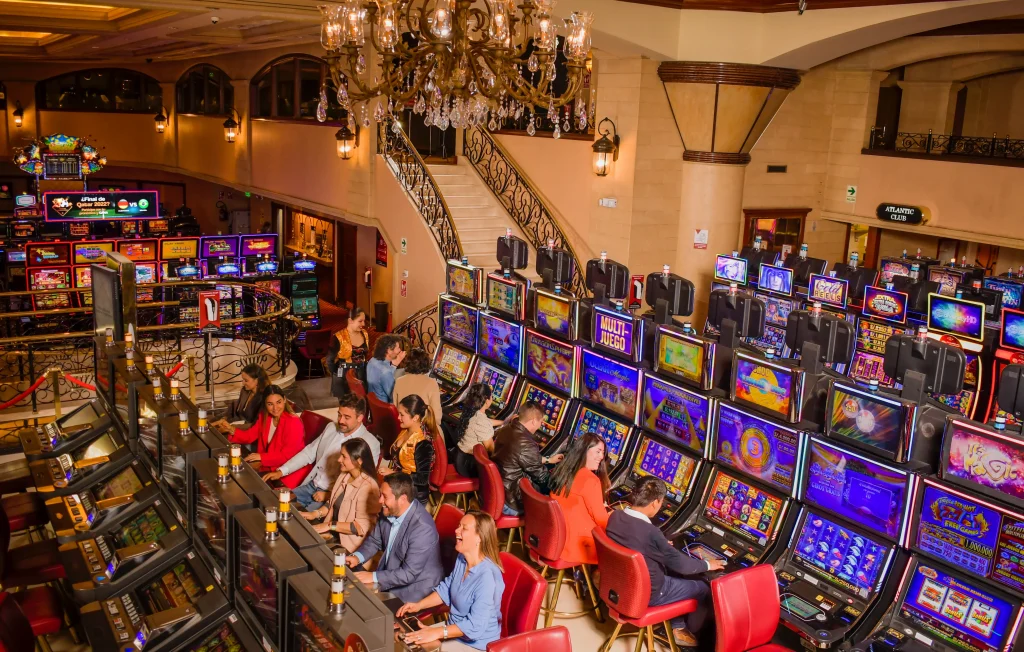
Casino experiences have long captured the interest of individuals around the globe, becoming an integral part of both fun and culture. From the shimmering lights of Las Vegas to the immersive experience of virtual casinos, these games evoke thrill, danger, and sometimes even a sense of remembrance. They are beyond just pastimes; they have woven themselves into the tapestry of human experience, influencing everything from film and melodies to style and writing.
The allure of casino games transcends the wagering aspect, tapping into larger themes of luck, chance, and psychology. As players gather around a gaming table or turn the roulette wheel, they engage in an ancient ritual that connects with our communal desire for adventure and instability. This obsession has led to the growth of countless references in films, music, and electronic games, showcasing how intensely entrenched these activities are in pop culture. Whether it is the high-stakes tension of a traditional heist movie or the lively nightlife portrayed in recordings, casino games have carved out a substantial place that reflects our connection with reward.
Social Importance of Casino Games
Casino activities have played a pivotal role in social contexts throughout the ages. Originating from old civilizations, games of chance were often connected to ceremonies or events. For instance, early iterations of gambling can be linked back to historic Chinese and the Romans, where die games and wagering on results were popular pastimes. These activities not only served as leisure but also as means of social interaction, facilitating relationships among individuals within communities.
As societies evolved, so did the sophistication and organization of gambling games. The establishment of official casinos in the 17th century, particularly in Italy, marked a significant shift in how games were perceived and organized. With designated spaces for gaming, the casino became a community center where people from different backgrounds gathered. This evolution contributed to the validation of gambling, transforming it from a mere pastime into an organized industry that shaped the economy and policy.
The effect of gambling games on popular culture cannot be overlooked. As they were popularized in literature and movies, games such as Texas Hold’em and 21 became symbols of chance, luck, and strategy. Iconic figures and stories have developed around these activities, reflecting societal attitudes towards luck, wealth, and immorality. 69VN This interest with casino games has infiltrated various forms of entertainment, cementing their place in the public imagination and connecting them to wider cultural stories throughout the ages.
Portrayal of Gambling Activities in Entertainment
Casino activities have long been a popular topic in different types of entertainment, reflecting both the thrill and complexities of the world of gambling. Movies such as Ocean’s 11 and Casino Royale portray figures who navigate dangerous scenarios, showcasing not only the allure of the gambling environment but also the strategies and decisions that come with playing popular games like Texas Hold’em and blackjack. These films often dramatize the excitement of winning and the potential repercussions of losing, encapsulating the dangers involved in betting.
TV programs have also explored the realm of casino games, often integrating them into the narrative as a context for story progression and tension. Series like Las Vegas depict the stories of gambling employees and casino-goers, highlighting the vibrant, often chaotic energy of the gaming floor. Docuseries featuring high-stakes betting contests further emphasize the fascination of casino games, drawing viewers into the excitement and planning involved in each game. Through these depictions, media not only amuses but also stimulates conversations about luck, expertise, and the character of randomness.
Gaming have increasingly integrated casino games into their development, allowing players to experience the feeling of betting without monetary loss. Titles within the domain of online gaming often include virtual slots, online poker, and other popular casino games, creating an engaging environment that mirrors actual casino experiences. These digital representations make gambling activities accessible to a broad demographic, appealing to both risk-takers and those who enjoy the thrill of simulation. As a outcome, the representation of gambling activities in media continues to shape societal views and importance, highlighting their place in entertainment and culture.
Impact of Casino Games on Communities
Gambling activities have a meaningful effect on society, influencing multiple facets of culture and interpersonal behavior. They often function as a venue for community engagement, where people come together to enjoy a shared activity. Game nights with friends or visits to casinos become social activities that build connections and create shared moments. This communal aspect boosts the entertainment value of casino games, making them a favored choice for celebrations and recreational pursuits.
Moreover, gambling activities have been portrayed in numerous films, television shows, and literature, influencing views and opinions towards gambling and betting. Icons like James Bond competing in baccarat or the intense poker scenes in films have cemented these games in the shared imagination. This depiction often idealizes the lifestyle associated with gambling, drawing in new players and influencing trends in both fashion and behavior. These representations can spark curiosity and lead to a deeper exploration of the nuances of gaming.
However, there are also adverse consequences linked to the widespread appeal of gambling activities. The temptation of quick monetary gain can lead to gambling addiction and economic troubles for some people. Society must contend with these consequences, advocating for responsible gaming and awareness of the risks involved. Balancing the fun aspect of gambling activities with the risks is vital to ensure that they continue to be a positive aspect of our cultural landscape.